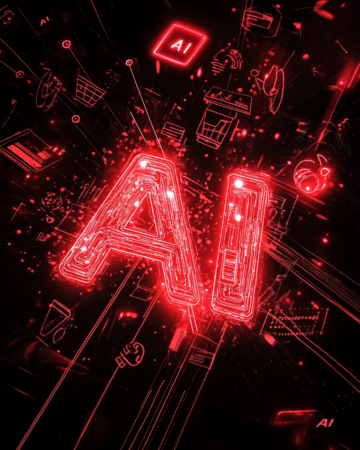Essential Insights
-
AI-Driven Hypothesis Generation: MIT researchers developed SciAgents, a multi-agent AI framework that autonomously generates and evaluates research hypotheses, enhancing the creativity and efficiency of scientific discovery in various fields.
-
Graph Reasoning for Knowledge Creation: The system uses ontological knowledge graphs to organize scientific concepts, enabling AI to extrapolate and propose novel ideas beyond mere information recall.
-
Collaborative AI Expertise: The framework’s agents—such as the Ontologist, Scientist 1, Scientist 2, and Critic—collaborate to refine hypotheses by critiquing and suggesting improvements, simulating diverse scientific collaboration.
- Broad Applicability and Future Potential: The approach has generated promising hypotheses for diverse applications, with researchers planning to scale the system to produce thousands of innovative ideas and adapt to new AI advancements.
AI Transforms Hypothesis Generation
Crafting a unique research hypothesis can challenge scientists, particularly new PhD candidates. It often consumes months, as they ponder what topics to pursue. Now, there’s a promising solution: artificial intelligence. Researchers at MIT have developed a system that generates and evaluates research hypotheses automatically. This approach enhances human-AI collaboration and aims to streamline the research process.
The Power of SciAgents
Dubbed SciAgents, this framework employs multiple AI agents with specialized capabilities. Each agent gathers and organizes data using “graph reasoning,” a method that defines relationships among various scientific concepts. This multi-agent strategy mimics how biological systems operate, emphasizing teamwork to produce greater results. One researcher described this as a “divide and conquer” approach, where collaboration leads to more innovative discoveries.
Advancing AI Creativity
Recent advancements in large language models (LLMs) have shown promising capabilities. However, many struggle to create new ideas autonomously. The MIT team aimed to develop a system that goes beyond standard information recall. By constructing an ontological knowledge graph from existing scientific literature, they enabled AI to understand and generalize concepts more effectively. This innovative design allows for more creative uses of AI in scientific inquiry.
A Team of Expert Agents
Within the SciAgents framework, various AI models interact to tackle complex problems that individual agents cannot resolve alone. The first step involves generating a research hypothesis. The process starts with a defined subgraph from the knowledge graph. An agent named “Ontologist” clarifies scientific terms and connections, while another model, “Scientist 1,” crafts proposals based on potential findings. This collaborative model generates more robust hypotheses.
Real-World Applications
To validate their framework, researchers tested it using keywords related to silk and energy efficiency. The AI suggested integrating silk with dandelion pigments for new biomaterials. This approach predicted enhanced properties, along with lower energy processing. The system then considers feedback from a third agent, the “Critic,” who identifies strengths and areas for improvement. This structured critique ensures thorough evaluation before experimentation.
Future Directions and Interest
The potential applications of this AI system extend across scientific disciplines. Already, researchers have created various novel hypotheses, ranging from new microfluidic designs to innovative bioelectronics. Looking ahead, the team plans to adapt the framework with new tools and advanced models. Their open-source preprint has attracted interest from professionals in not just science, but also finance and cybersecurity.
By enhancing the hypothesis generation process, this MIT initiative promises to revolutionize research efficiency. This system lets scientists focus on validating ideas, making data-driven exploration more accessible and effective.
Stay Ahead with the Latest Tech Trends
Dive deeper into the world of Cryptocurrency and its impact on global finance.
Discover archived knowledge and digital history on the Internet Archive.
AITechV1

